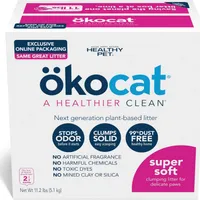Why is my cat eating litter? 6 reasons, explained by a vet
A cat eating litter can be a sign of anything from curiosity to an underlying health issue – here's what you need to know
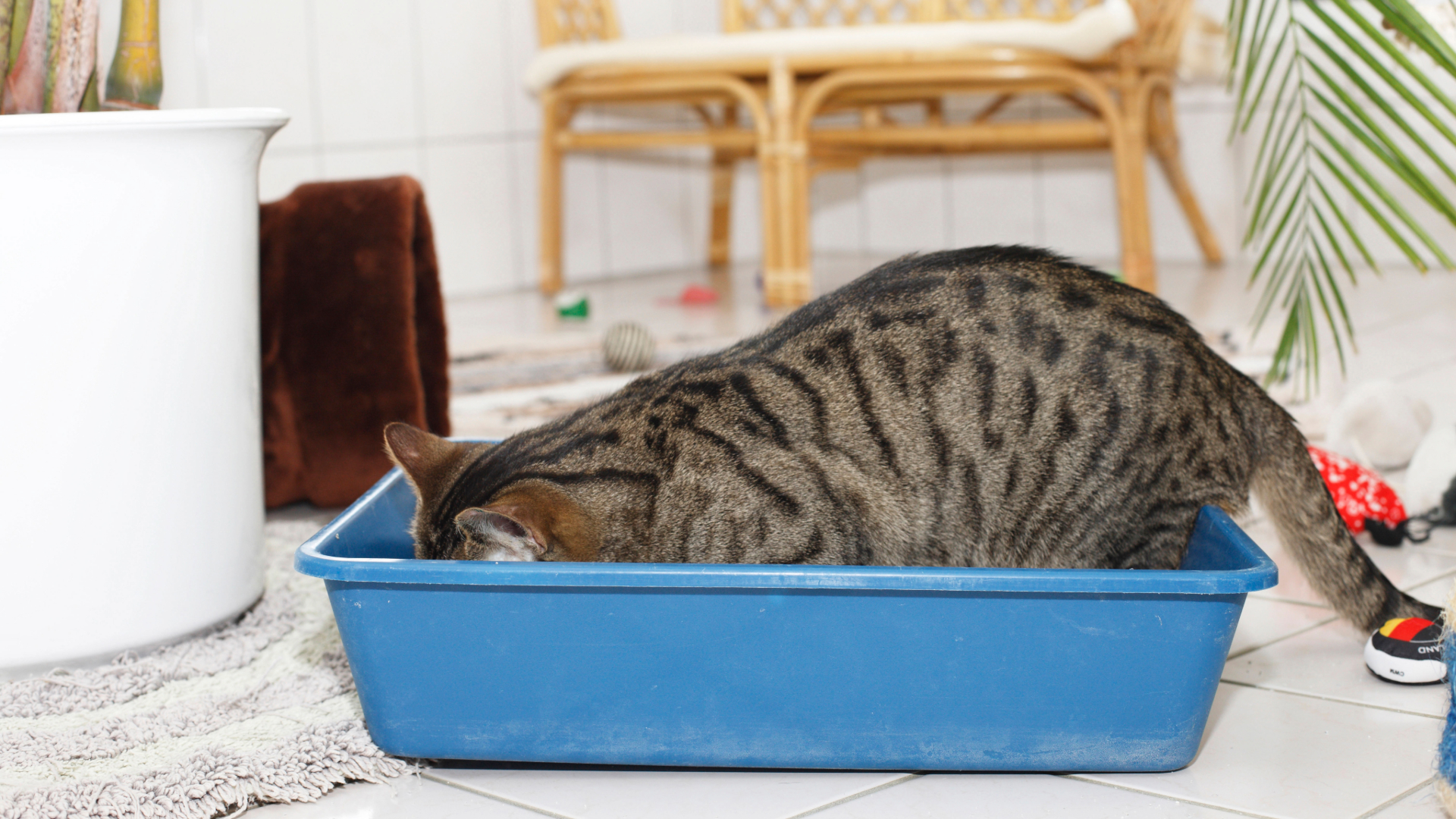
Get the best advice, tips and top tech for your beloved Pets
You are now subscribed
Your newsletter sign-up was successful
As a vet and lifelong cat lover, I’ve had my fair share of puzzling consults, but one question that pops up more often than you’d think is: Why is my cat eating litter? It’s certainly not the most appetizing snack, but there are several reasons why cats may show interest in consuming the best cat litter – and many of them may need to be addressed promptly.
In some cases, litter eating can be a harmless exploratory behavior, especially in kittens. But for adult cats, it’s more likely to point to a nutritional deficiency, stress, or even an underlying medical condition like anemia or gastrointestinal disease. It's important for pet parents to understand the “why” behind this odd behavior – and know when it’s time to call the vet.
In this guide, I’ll walk you through the most common causes, potential health risks, and practical ways to stop your feline from snacking on something they really shouldn’t be.
Why is my cat eating litter?
If your cat is eating litter, there are several possible explanations. Some are relatively harmless, while others can be a red flag for something more serious. Here’s what might be going on:
1. Curiosity or exploratory behavior: Kittens, in particular, use their mouths to explore the world, much like human babies. It’s not uncommon for them to nibble at their litter as part of this phase. Usually, they grow out of it once they understand it’s not food.
2. Anemia: One of the more serious causes of litter eating is anemia. When a cat has low levels of red blood cells, they can display unusual behaviors, including eating non-food items – a condition known as pica. If your cat is lethargic, has pale gums, and is showing a sudden interest in eating litter, get them checked out promptly.
3. Nutritional deficiencies: Cats who are missing essential nutrients in their diet, especially minerals like iron, may turn to litter in an attempt to compensate. This is more likely if your cat is on a poorly balanced homemade diet or a low-quality commercial food.
Get the best advice, tips and top tech for your beloved Pets
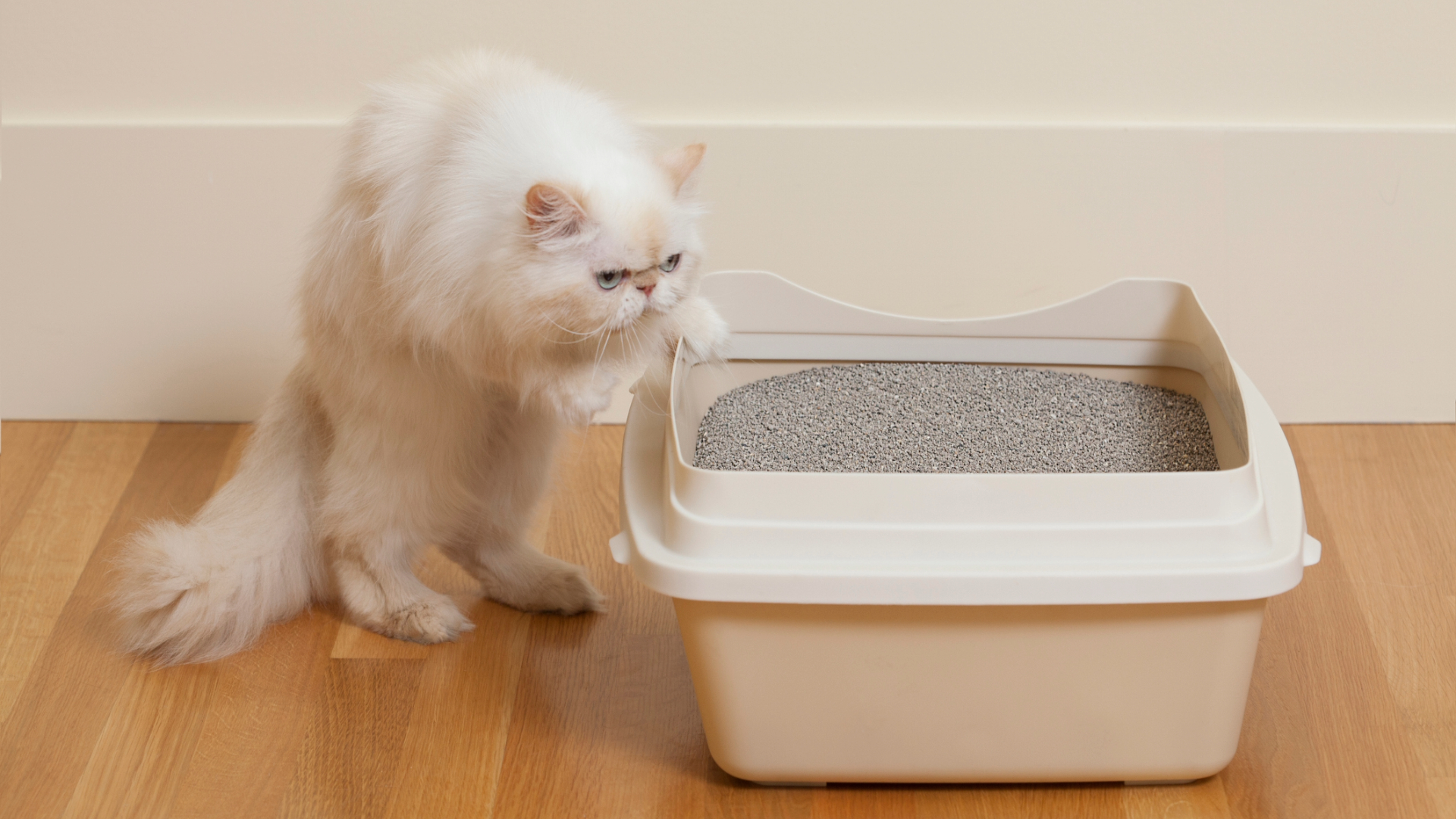
4. Stress or anxiety: Behavioral issues can also be a cause. Stress and anxiety from a recent move, new pets in the home, or changes to their routine may cause some cats to develop compulsive behaviors, including eating litter. Environmental enrichment and routine are key here.
5. Underlying medical conditions: Sometimes, cats with gastrointestinal disorders, chronic kidney disease, or even diabetes may start exhibiting unusual eating habits. It’s important to rule out any medical causes, especially if this is new behavior in an adult cat.
6. Inappropriate litter type: Some types of cat litter are made from materials that actually smell or taste vaguely edible, such as corn, wheat, or walnut-based litters. While these are often marketed as eco-friendly, some cats may mistake them for food.
What happens if my cat eats litter?
Whether your cat eats litter once or repeatedly, there may be health consequences, and some are serious. Clumping clay litter is particularly risky, as it can expand and cause blockages in the intestines, leading to vomiting, constipation, or even life-threatening obstruction. Silica-based litters can cause irritation or dehydration, while natural litters may ferment in the gut.
Even small amounts ingested over time can build up and cause chronic GI issues. If you see your cat eating litter regularly or showing signs like vomiting, lethargy, not eating, or changes in bowel movements, it’s time to visit your vet. A simple blood test can rule out anemia, and your vet may recommend diet changes or imaging to check for blockages.
ökocat Super Soft Wood Clumping Cat Litter | Amazon
If your cat tends to nibble at their litter, switching to a natural, non-toxic, biodegradable litter like Ökocat can offer peace of mind. It’s made from sustainably sourced wood fibers, free from synthetic fragrances, and doesn’t clump in the gut – making it a safer choice for curious kitties.
How do you stop your cat from eating cat litter?
Here are some practical steps you can take to help stop your cat from eating their litter:
- Rule out medical issues first: Always start with a vet check to exclude anemia, nutritional deficiencies, or underlying illnesses.
- Switch to a safer litter: Consider changing to a non-clumping, unscented, or paper-based litter that won’t cause harm if ingested.
- Improve your cat’s diet: Make sure your cat is eating a complete and balanced diet suitable for their life stage. Your vet can help with this, and there is a lot of information available on the best cat foods to choose.
- Provide enrichment: Offer plenty of toys, puzzles, and playtime to reduce boredom and redirect oral behaviors.
- Address stress: Learn how to identify the signs of stress in cats and how to help them. You can use feline pheromone diffusers, make sure you provide safe hiding spots, and stick to a predictable routine to help them out.
- Clean the litter box regularly: Keep the tray clean and fresh so your cat isn’t put off using it properly – a clean environment reduces behavioral stress. We have a helpful guide on how (and how often) to clean a litter box,
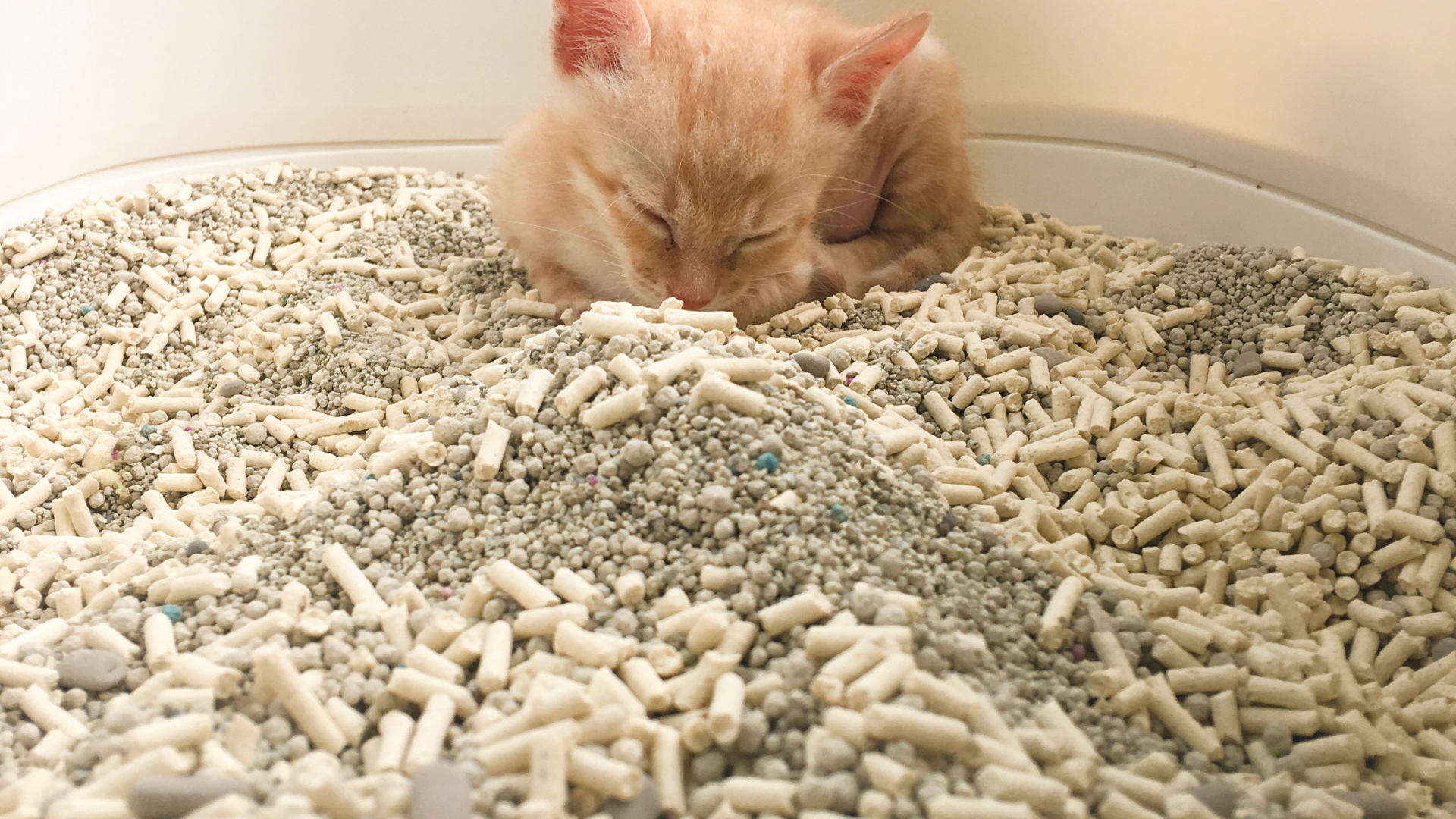
So, why is your cat eating litter? The answer could range from innocent kitten curiosity to a more serious medical condition. While the behavior can be alarming, staying calm and proactive is key. Always start by consulting your vet, rule out health concerns, and make practical changes to your cat’s litter and environment.
With the right care and a little detective work, you can help your cat kick the habit –and keep their litter tray strictly for business, not snacks.
Read next: How to get a cat use to a litter box and whether you can use sand as cat litter
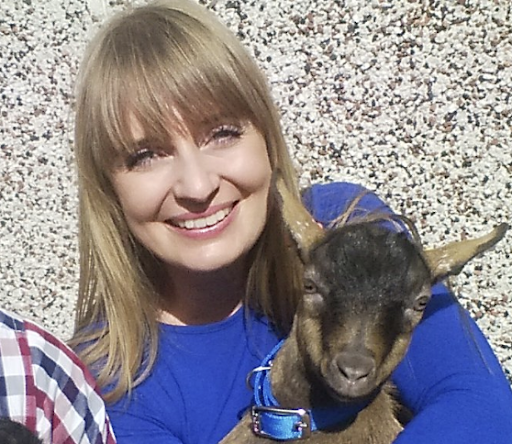
Emma Chandley is a vet with 14 years of experience and has a keen interest in surgery. After graduating from the Royal Vet College in London in 2011, she achieved a postgraduate certificate in small animal surgery from the British Small Animal Veterinary Association and Nottingham Trent University. She was then awarded advanced practitioner status in the same discipline by The Royal College of Veterinary Surgeons. She has a black Labrador and two pygmy goats at home.
Edited by Megan Milstead.
This feature was last updated in August 2025 by Emma Chandley.
Emma Chandley is a vet with 14 years of experience and has a keen interest in surgery. After graduating from the Royal Vet College in London in 2011, she achieved a postgraduate certificate in small animal surgery from the British Small Animal Veterinary Association and Nottingham Trent University. She was then awarded advanced practitioner status in the same discipline by The Royal College of Veterinary Surgeons. She has a black Labrador and two pygmy goats at home.
